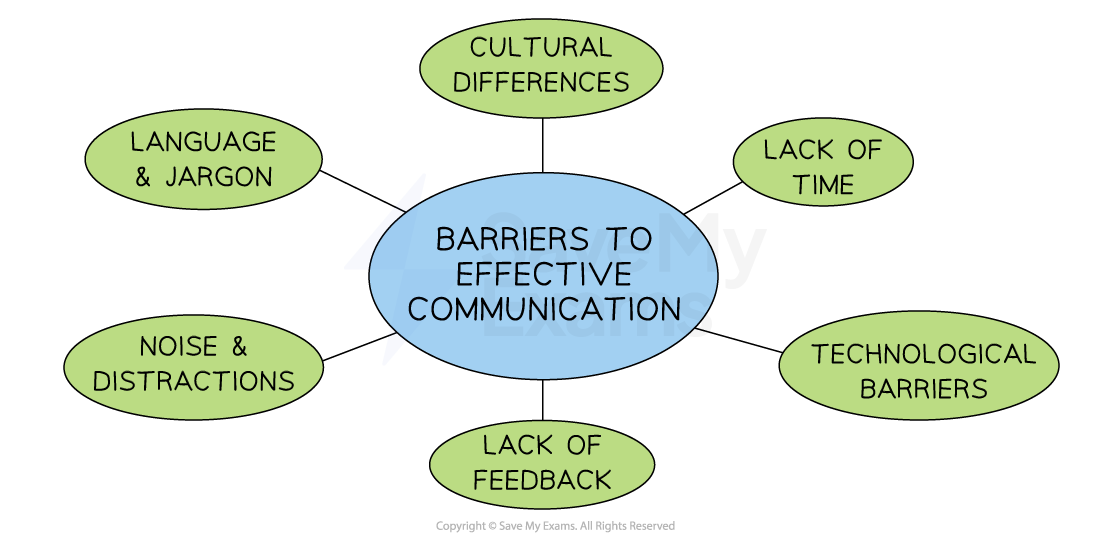Barriers to Communication (Cambridge (CIE) A Level Business): Revision Note
Exam code: 9609
Common barriers to communication
Barriers to communication hinder the flow of information, leading to potential misunderstandings, conflicts and inefficiency
Barriers to effective communication

Language and jargon
The use of technical terminology or industry-specific jargon can lead to misunderstandings
Industry- or business-specific acronyms can confuse new staff
Staff in businesses that operate across international borders may speak different languages
Noise and distractions
Loud machinery or a crowded workspace can interfere with effective communication
Distractions, including phone notifications and email alerts, which can divert attention
Lack of feedback
The absence of feedback can affect understanding and lead to misunderstandings
Messages may require urgent clarification or correction to avoid mistakes being made
Cultural differences
Cultural norms and expectations can affect communication style
Lack of time
Busy work schedules and competing priorities can limit the time available for communication
Technological barriers
Technical issues such as poor internet connections, malfunctioning equipment or unfamiliarity with platforms can slow communication
How to overcome barriers to communication
Tackling communication barriers is an essential investment in organisational success
Global supply chains rely on precise instructions
Remote teams depend on stable digital links
Diverse employees need to feel heard and respected
Ways to overcome barriers to communication
Barrier | Practical ways to overcome it |
|---|---|
Language & jargon |
|
Noise & distractions |
|
Lack of feedback |
|
Cultural differences |
|
Lack of time |
|
Technological barriers |
|

Unlock more, it's free!
Was this revision note helpful?
